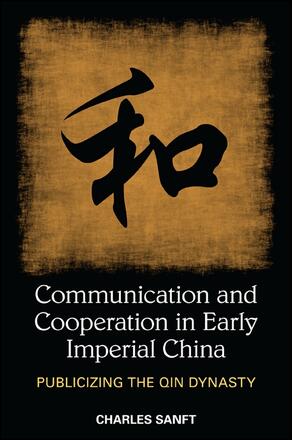
Communication and Cooperation in Early Imperial China
Publicizing the Qin Dynasty
Alternative formats available from:
Challenges traditional views of the Qin dynasty as an oppressive regime by revealing cooperative aspects of its governance.
Description
This revealing book challenges longstanding notions of the Qin dynasty, China's first imperial dynasty (221–206 BCE). The received history of the Qin dynasty and its founder is one of cruel tyranny with rule through fear and coercion. Using a wealth of new information afforded by the expansion of Chinese archaeology in recent decades as well as traditional historical sources, Charles Sanft concentrates on cooperative aspects of early imperial government, especially on the communication necessary for government. Sanft suggests that the Qin authorities sought cooperation from the populace with a publicity campaign in a wide variety of media—from bronze and stone inscriptions to roads to the bureaucracy. The book integrates theory from anthropology and economics with early Chinese philosophy and argues that modern social science and ancient thought agree that cooperation is necessary for all human societies.
Charles Sanft is Assistant Professor of Premodern Chinese History at the University of Tennessee, Knoxville.
Reviews
"Students of early China have been following the publications of Charles Sanft for nearly a decade and will now welcome his first book … [a] strong and useful monograph … After reading Communication and Cooperation in Early Imperial China, no historian could reasonably deny that the Qin government adopted a range of sophisticated techniques to encourage the people's compliance, and our understanding is richer for it. " — Journal of Chinese Studies
"…Charles Sanft proposes a sophisticated reinterpretation of Qin imperial history and political symbolism by looking beyond the immediate pragmatic effects of political measures in order to probe their wider communicative purposes … He doubtless succeeds admirably in his declared aim to undermine the traditional picture of senseless Qin barbarity by offering a way of viewing Qin activities that makes them intelligible instead … Sanft succeeds in an exemplary fashion at utilizing both new evidence and novel approaches. He deserves to be congratulated on both accounts. " — Chinet